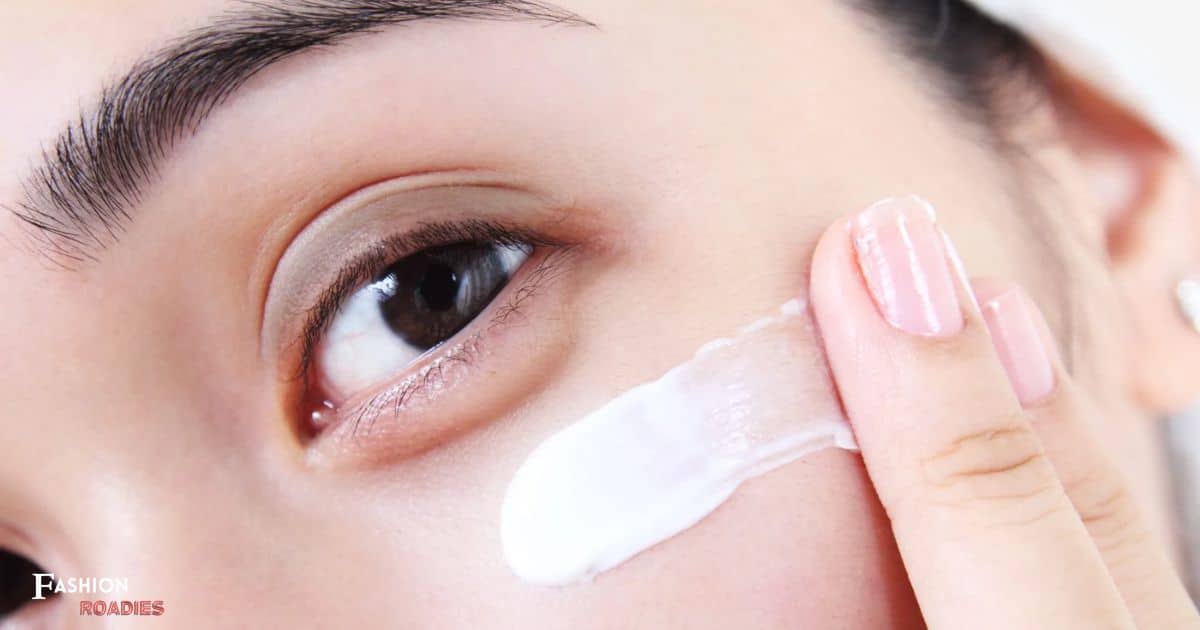In the quest for radiant and healthy skin, starting a proper skincare routine can seem overwhelming. However, with the right knowledge and guidance, achieving a flawless complexion is within reach. This comprehensive article aims to guide you through the initial steps of building an effective skincare regimen. By understanding your skin type, selecting the appropriate products, and addressing specific concerns, you can embark on a journey towards beautiful and nourished skin. Join us as we delve into the world of skincare and discover the path to a radiant complexion.
Key Takeaways
- Understanding your skin type is crucial in determining how skincare products and environmental factors affect your skin.
- When selecting skincare products, consider your skin type and specific concerns, and look for ingredients that address those concerns.
- Create a simple daily skincare routine that includes cleansing, toning, moisturizing, and applying sunscreen, and add targeted treatments as needed.
- Address specific skin issues by understanding their underlying causes and using targeted skincare products formulated to address those concerns.
Understanding Your Skin Type
Understanding your skin type is essential for developing an effective skincare routine. Your skin type determines how it reacts to certain products and environmental factors, and understanding it allows you to tailor your skincare regimen accordingly. There are four main skin types: oily, dry, combination, and sensitive.
Oily skin is characterized by excess sebum production, while dry skin lacks moisture. Combination skin is a combination of both oily and dry areas, and sensitive skin is easily irritated. Identifying your skin type will help you choose the right products that address your specific concerns. Whether you need oil-free moisturizers for oily skin or gentle cleansers for sensitive skin, selecting the right products based on your skin type is the next crucial step in achieving healthy, radiant skin.
Selecting the Right Products
To effectively select the right products for your skincare routine, it is important to consider your skin type and specific concerns. Here are three key factors to keep in mind when choosing skincare products that will help you achieve a healthy and radiant complexion:
- Skin Type: Determine whether your skin is dry, oily, combination, or sensitive. Different skin types have different needs and require specific formulations. For example, if you have dry skin, look for moisturizing products with ingredients like hyaluronic acid or ceramides. If you have oily skin, opt for oil-free or mattifying products to control excess shine.
- Specific Concerns: Identify any specific skin concerns you want to address, such as acne, aging, hyperpigmentation, or sensitivity. Look for products that are formulated to target these concerns, such as acne-fighting cleansers or anti-aging serums with retinol.
- Ingredients: Pay attention to the ingredients list and avoid products that contain potential irritants or allergens. Look for products with beneficial ingredients like antioxidants, vitamins, and natural extracts to nourish and protect your skin.
Creating a Simple Daily Routine
When establishing a simple daily routine for skincare, it is important to incorporate essential steps that cater to your skin’s specific needs. This routine should be personalized to address your unique concerns and provide the necessary nourishment and protection for your skin. Begin by cleansing your face twice a day with a gentle cleanser to remove dirt, oil, and impurities.
Follow this with a toner to balance the skin’s pH levels and prepare it for the next steps. Next, apply a moisturizer to hydrate and protect your skin throughout the day. Don’t forget to include sunscreen in your routine to shield your skin from harmful UV rays. Lastly, consider adding targeted treatments like serums or masks to address specific concerns such as acne, aging, or hyperpigmentation. By following this simple daily routine, you can maintain healthy and radiant skin that you can be proud of.
Adding Extra Steps as Needed
To enhance your skincare routine, consider incorporating additional steps based on your skin’s individual needs. Here are three key steps you can add to your routine:
- Exfoliation: Regular exfoliation helps to remove dead skin cells and unclog pores, leaving your skin smoother and more radiant. Choose a gentle exfoliator that suits your skin type and use it 1-2 times a week.
- Serum: Adding a serum to your routine can provide targeted treatment for specific skin concerns, such as hydration, brightening, or anti-aging. Look for serums with active ingredients like hyaluronic acid, vitamin C, or retinol, and apply them after cleansing and toning.
- Face mask: Pamper your skin with a weekly face mask to give it an extra boost of nourishment and hydration. Choose a mask that addresses your skin’s needs, whether it’s soothing, detoxifying, or hydrating.
Addressing Specific Skin Issues
Effective treatment of specific skin issues requires an understanding of the underlying causes and the use of targeted skincare products. Each skin issue has its own unique characteristics and triggers, making it crucial to identify the root cause before selecting appropriate treatments. Whether dealing with acne, hyperpigmentation, dryness, or sensitivity, it is essential to choose skincare products specifically formulated to address these concerns.
Acne, for example, may be caused by excess oil production, bacteria, or hormonal imbalances, and can be treated with ingredients like salicylic acid or benzoyl peroxide. Hyperpigmentation, on the other hand, may require products with ingredients like vitamin C or retinol to help fade dark spots and even out skin tone. By understanding the specific needs of your skin and using targeted skincare products, you can effectively address and improve your skin’s condition.
Choosing the Right Active Ingredients
To effectively choose the right active ingredients for your skincare routine, it is important to be knowledgeable about their properties and benefits. Here are three key considerations to keep in mind:
- Skin type: Understand your skin type, whether it’s dry, oily, combination, or sensitive. Different active ingredients are tailored to address specific concerns for each skin type.
- Concerns: Identify the specific skincare concerns you want to target, such as acne, hyperpigmentation, or aging. Look for active ingredients that are known to address these concerns effectively.
- Compatibility: Consider the compatibility of the active ingredients with each other and with your existing skincare products. Some ingredients may interact negatively, so it’s essential to do your research or consult with a dermatologist.
Knowing About Skin Care Ingredients
Understanding the properties and benefits of skincare ingredients is essential for creating a personalized and effective skincare routine. With a multitude of products available in the market, it can be overwhelming to decipher which ingredients are best suited for your skin type and concerns. By gaining knowledge about skincare ingredients, you can make informed decisions and choose products that address your specific needs.
Key ingredients like hyaluronic acid, vitamin C, retinol, and niacinamide have been proven to provide various benefits such as hydration, brightening, anti-aging, and soothing. Moreover, understanding the role of preservatives, emollients, and humectants can help you identify potential irritants or allergens. By being well-informed about skincare ingredients, you can take control of your skincare routine and achieve healthier, more radiant skin.
Catering to Specific Skin Concerns
When addressing specific skin concerns, it is important to tailor your skincare routine to target the specific needs of your skin. By understanding your skin type and identifying any specific issues you may have, you can choose products and treatments that will effectively address your concerns. Here are three important steps to help you cater to your specific skin concerns:
- Identify your skin concern: Whether it’s acne, dryness, aging, or hyperpigmentation, knowing your specific skin concern is crucial in finding the right products and treatments.
- Research suitable ingredients: Look for ingredients that are known to effectively treat your specific skin concern. For example, salicylic acid for acne, hyaluronic acid for dryness, retinol for aging, and vitamin C for hyperpigmentation.
- Consult with a dermatologist: If you have persistent or severe skin concerns, it’s always a good idea to seek professional advice. A dermatologist can provide personalized recommendations and guide you towards the most effective solutions.
FAQ’s
Can I Use the Same Products for My Body as I Do for My Face?
Using the same products for the body as for the face depends on individual skin type and concerns. However, it is generally recommended to use products specifically formulated for the face due to its more sensitive nature.
Is It Necessary to Use a Separate Sunscreen if My Foundation Already Has Spf?
It is recommended to use a separate sunscreen even if your foundation has SPF. This is because the amount of SPF in foundation is usually not enough to provide adequate protection against harmful UV rays.
Can I Skip Moisturizing if I Have Oily Skin?
Moisturizing is an essential step in skincare, even for individuals with oily skin. It helps to maintain the skin’s natural barrier, balance oil production, and prevent dehydration. A lightweight, oil-free moisturizer is recommended for oily skin types.
How Often Should I Exfoliate My Skin?
Exfoliating frequency depends on skin type and condition. Generally, it is recommended to exfoliate 1-3 times a week. However, it is crucial to listen to your skin and adjust accordingly to avoid over-exfoliation and potential skin damage.
What Is the Best Way to Remove Stubborn Waterproof Makeup?
Removing stubborn waterproof makeup can be a challenge. One effective way is to use a gentle, oil-based cleanser specifically formulated for waterproof makeup removal. Apply it to a cotton pad and gently wipe the makeup away, followed by a thorough rinse.
Conclusion
In conclusion, taking care of your skin is essential for maintaining its health and appearance. By understanding your skin type, selecting the right products, and creating a simple daily routine, you can achieve a healthy and glowing complexion. Additionally, addressing specific skin issues and choosing the right active ingredients can further enhance your skincare routine. Remember, “a stitch in time saves nine,” so investing time and effort in skincare now can prevent future skin problems and promote long-term skin health.










